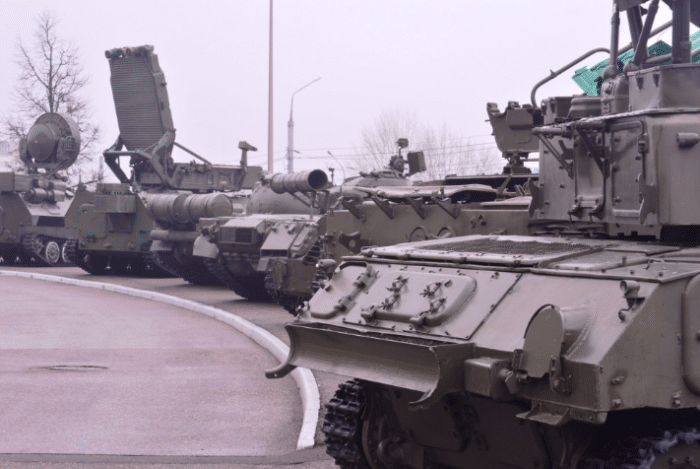In the Media: The Educator, by Scott Sweeney
This week in my Year 12 History class we discussed the Treaty of Brest-Litovsk (1918) which brought an end to Russia’s involvement in World War One. As part of the treaty Russia ceded vast swathes of European Russia to Germany. Additionally, the Treaty recognised the independence of a number of new countries under the protection of Germany, including Ukraine which had previously been part of Imperial Russia. 1918 was also the first time the blue and yellow Ukrainian flag was used as the official state flag of Ukraine.
There are obvious links to the current conflict in Ukraine, and students have found historical analysis of the relationship between Russia and Ukraine instructive in understanding the 2022 crisis. From a distance of 14,000 kilometres it is easy enough for students to understand a balanced view of the origins of the crisis. Analysing why Putin believes Ukraine “is an integral part of [Russia’s] own history, culture, spiritual space” doesn’t excuse Putin’s horrific invasion, but it does help to explain it.
It is much harder for Russian school children themselves to understand a nuanced view of the conflict, however. In early March, it was widely reported that Russian social studies teachers were instructed to read a two page script to students to help explain Russia’s “special peacekeeping operation” in Ukraine. It claimed that Russia’s “policy is freedom, freedom of choice for everyone to independently determine their own future and the future of their children.” It goes on to say that, of course, Russia is “not going to impose anything on anyone by force.”
Governments mandating an interpretation of an historical or current event are not always as nefarious, of course. But whenever governments promote a particular interpretation, they are doing a disservice to the teaching profession, to the students and to broader society as well. In September 2021, former Education Minister Alan Tudge decried the proposed national History curriculum which included the following content descriptor intended to help the History teacher understand what to teach, “The commemoration of World War I, including different historical interpretations and contested debates about the nature and significance of the Anzac legend and the war.” In an interview with Triple J’s Hack, Tudge lamented the fact that Anzac Day was presented as a contested idea and suggested that “Anzac Day is not a contested idea” going on to say that he wanted “people to come out [of the education system] having learnt about our country with a love of it, rather than a hatred of it.” While Tudge’s comments may be well intended, it shows a lack of understanding of what History education is actually about. The job of a History teacher is not to teach students what to think, but how to think. If a student is able to find evidence that helps them present a view that is divergent to the mainstream then that should be investigated and discussed. There are very few historical events that have an uncontested interpretation and we should be equipping our students with the ability to critically investigate and explore different ideas and persepctives whenever we teach History.
With reports that Victoria and NSW will insist on an ‘adopt and adapt’ approach to the recently approved national curriculum, it’s important to remember that when History curricula is designed for implementation in schools, it should not contain any requirement to teach particular interpretations or push any specific ideological view. Events will always be contested and all History teachers are capable of exploring these nuances within their educational context. We are lucky to live in one of the most pluralistic, egalitarian societies in the world. Unlike authoritarian Russia, we need not be threatened by a diverse and open analysis of our past.
Scott Sweeney is Head of Humanities and VCE Co-Ordinator at Strathcona Girls Grammar


